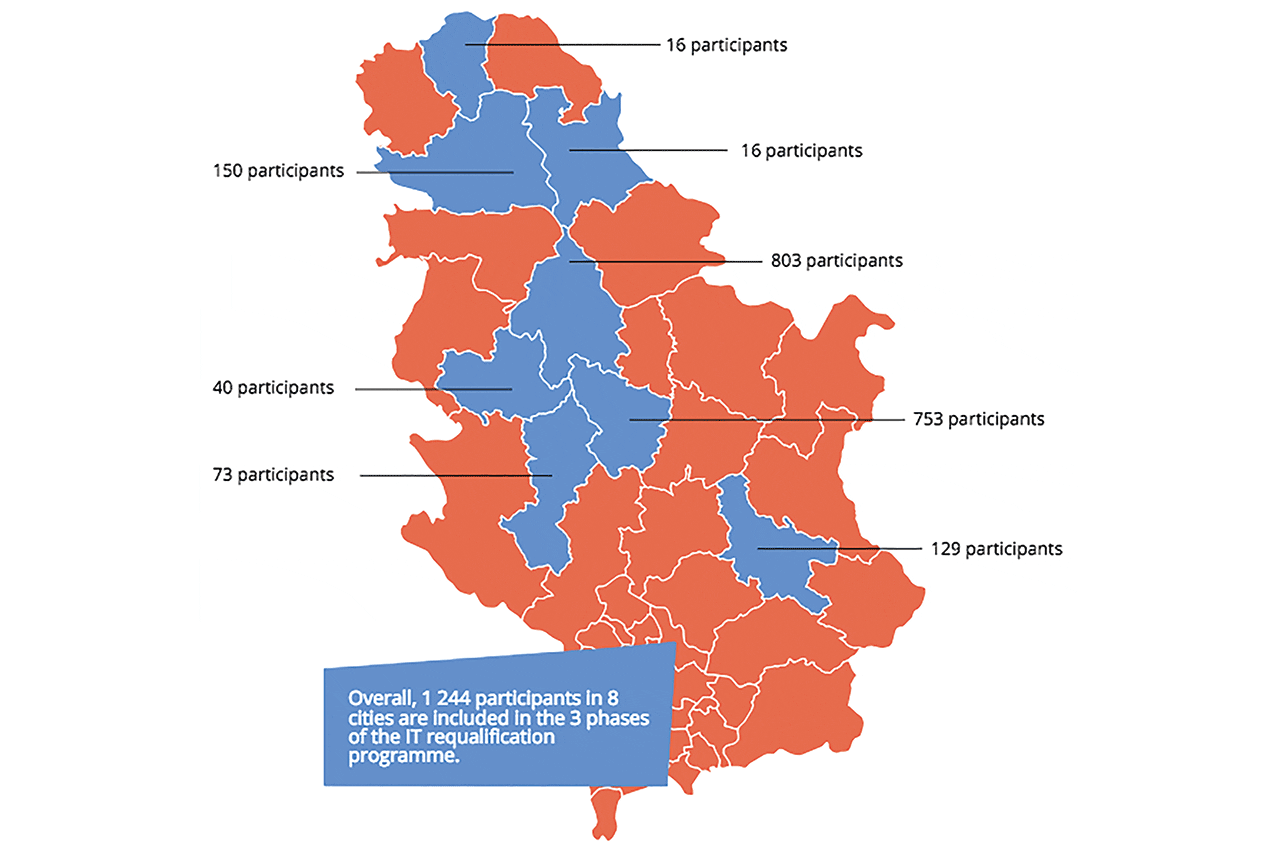“Digital revolution provides us with the opportunity for the economic development of our country. It gives us a chance to become competitive on the market and catch up with the developed countries. This technological revolution fundamentally changes our lives, it is inevitable and unstoppable. The Office has taken steps in this direction through the projects we implement in this field and we are successfully moving towards the digital transformation.” – Mihailo Jovanović, Director, Office for Information Technologies and e-Government
Digital transformation is high on the agenda of the Serbian Government, which considers the modernisation of government institutions, but also utilising the potential of digital in the economy. Among the top priorities is introducing e-services that are cost-effective, secure and citizen-centric, and coordinating the implementation of ICT policies, but also re-training in IT skills, to meet the demand of the industry.
The Government of Serbia’s Office for IT and e-Government (ITE) is leading the way on the implementation of this agenda, and in 2018 – along with UNDP and the UK Good Governance Fund – it initiated the project “Serbia at your fingertips – digital transformation for development,” to prepare and support the Serbian public administration and the economy in digital transformation, enabling the Government of Serbia to provide more transparent and accountable digital services by 2020. Key UNDP and ITE partners in this initiative include the Ministerial Council for IT and Innovative Entrepreneurship, the Coordination Council for e-Government and the Prime Minister’s Council for Creative Industries, all of which work jointly to further advance e-governance in Serbia.
UNDP is providing expert support in drafting the new National e-Government Strategy and implementing the new Law on e-Governance. A Contact centre for support to government institutions in the provision of e-services has been established within ITE, while support for the improvement of the ICT infrastructure required for the digital transformation of public administration is underway, with recommendations for Government Network and Cloud improvement, and the conceptualisation of the Government Data Centre/Disaster Recovery facility in Kragujevac.
In order to increase the number of IT specialists on the labour market, 731 individuals have been trained as for junior programmers through the re-qualification programme in eight cities across the country. Via UNDP, the Government of Serbia piloted the outsourcing of various models for the provision of IT training for both employed and unemployed persons, seeking to institutionalise the approach based on lessons learnt. More than 10 services providers have so far participated in this endeavour, and trainees have started finding employment opportunities.

In August 2018, UNDP joined the Partnership on Artificial Intelligence (AI), a consortium of companies, academics and NGOs working to ensure that AI is developed in a safe, ethical and transparent manner. Founded in 2016 by tech giants Amazon, DeepMind/Google, Facebook, IBM and Microsoft, it has since been joined by both industry leaders and nonprofit organisations.
This project builds on the work of recent years in terms of introducing software solutions to modernise the work of state institutions and render them more efficient. For example, UNDP supported the Serbian Business Registry Agency in enabling the online registration of entrepreneurs and one-member companies, making the registry not only simpler and faster but also cheaper.
Local assemblies across Serbia are installing custom-made software for monitoring local budget expenditures online, developed jointly by the Standing Conference of Towns and Municipalities, the Government of Sweden and UNDP, as well as e-parliament software supported by UNDP and the Swiss Government.
The Public Procurement Office, with the support of UNDP, is taking open data a step further by introducing the open contracting standard. The management of public debt is more effective and efficient following the recent introduction of custom-made software for the Public Debt Administration.
These are only some examples of an area where UNDP has sought to improve practises and processes through a digital transformation over the past decade.
